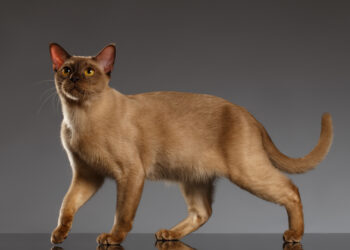Cats, like humans, require a balanced diet to maintain optimal health. While many pet owners focus on providing their feline friends with the best commercial cat food available, understanding the specific nutritional needs of cats is essential. This blog post aims to delve into the crucial vitamins and minerals that are vital for a cat’s health and well-being. By understanding these nutrients, you can make more informed decisions about the best cat food for your furry companion.
In this article, we will explore the key vitamins and minerals that should be present in cat food, their roles in feline health, and tips for selecting high-quality cat food. Our goal is to ensure that your cat receives all the necessary nutrients for a healthy and happy life.
The Importance of a Balanced Diet for Cats
Nutritional Needs of Cats
Cats are obligate carnivores, which means their diet must primarily consist of meat. Unlike omnivores like dogs or humans, cats have a higher protein requirement and need specific nutrients that can only be found in animal products. These nutrients are essential for various bodily functions, including growth, immune system support, and maintaining healthy skin and fur.
Essential Vitamins and Minerals for Cats
To ensure your cat thrives, it is crucial to provide them with a diet rich in essential vitamins and minerals. These nutrients play a vital role in maintaining various physiological functions and preventing deficiencies that could lead to serious health issues.
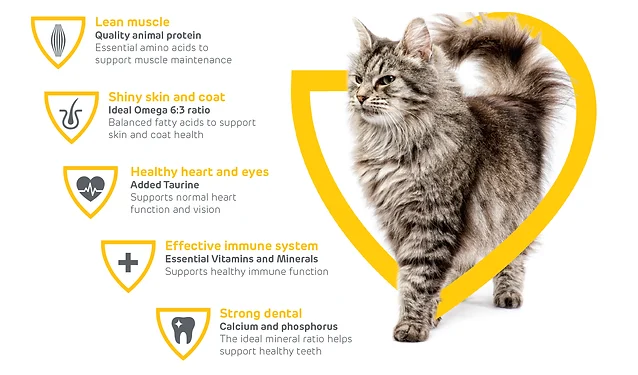
1. Vitamin A
Vitamin A is crucial for maintaining healthy vision, skin, and immune function. Cats cannot convert beta-carotene (found in plants) into vitamin A, so they must obtain it from animal sources. Deficiency in vitamin A can lead to night blindness and poor skin health.
2. Vitamin D
Vitamin D is essential for calcium absorption and bone health. Unlike humans, cats cannot synthesize vitamin D through sunlight exposure and must obtain it through their diet. Deficiency can result in weakened bones and skeletal deformities.
3. Vitamin E
Vitamin E acts as an antioxidant, protecting cells from damage. It is also important for muscle function and reproduction. A lack of vitamin E can cause muscle degeneration and reproductive issues.
4. B Vitamins
The B vitamins, including B1 (thiamine), B2 (riboflavin), B3 (niacin), B5 (pantothenic acid), B6 (pyridoxine), B7 (biotin), B9 (folate), and B12 (cobalamin), are essential for energy metabolism, nervous system function, and red blood cell production. Deficiencies in B vitamins can lead to a range of issues, from lethargy to neurological disorders.
Choosing the Best Cat Food
When selecting cat food, it is important to read the labels carefully and choose products that provide a well-balanced mix of these essential vitamins and minerals. Look for cat food brands that use high-quality animal proteins and are formulated to meet the nutritional standards set by the Association of American Feed Control Officials (AAFCO).
Key Minerals for Cat Health
Calcium and Phosphorus
Calcium and phosphorus are essential for maintaining strong bones and teeth. These minerals must be in the correct ratio to prevent skeletal problems. An imbalance can lead to conditions such as hyperparathyroidism and bone fractures.
Magnesium
Magnesium is involved in numerous metabolic processes, including energy production and muscle function. Adequate magnesium levels are necessary to prevent issues like muscle tremors and weakness.
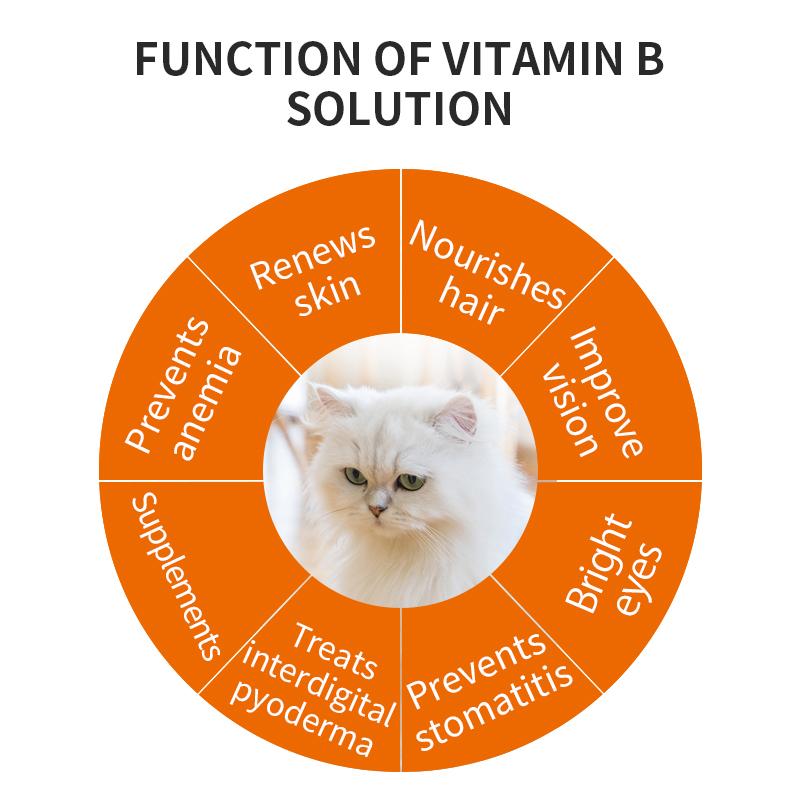
Potassium
Potassium is vital for maintaining proper muscle and nerve function. It also plays a role in regulating fluid balance in the body. Deficiency in potassium can lead to muscle weakness and cardiac issues.
Iron
Iron is crucial for the production of hemoglobin, which carries oxygen in the blood. An iron deficiency can result in anemia, characterized by fatigue and weakness.
Zinc
Zinc is important for immune function, wound healing, and maintaining healthy skin and coat. A deficiency in zinc can lead to skin lesions and a weakened immune system.
Essential Vitamins and Minerals for Cats in Commercial Cat Food
Many commercial cat foods are formulated to include these essential vitamins and minerals. However, the quality and bioavailability of these nutrients can vary significantly between brands. It is important to choose cat food that uses high-quality ingredients and provides balanced nutrition.
How to Read Cat Food Labels
Understanding how to read and interpret cat food labels is crucial for ensuring your cat gets the nutrients they need. Here are some tips for deciphering the labels:
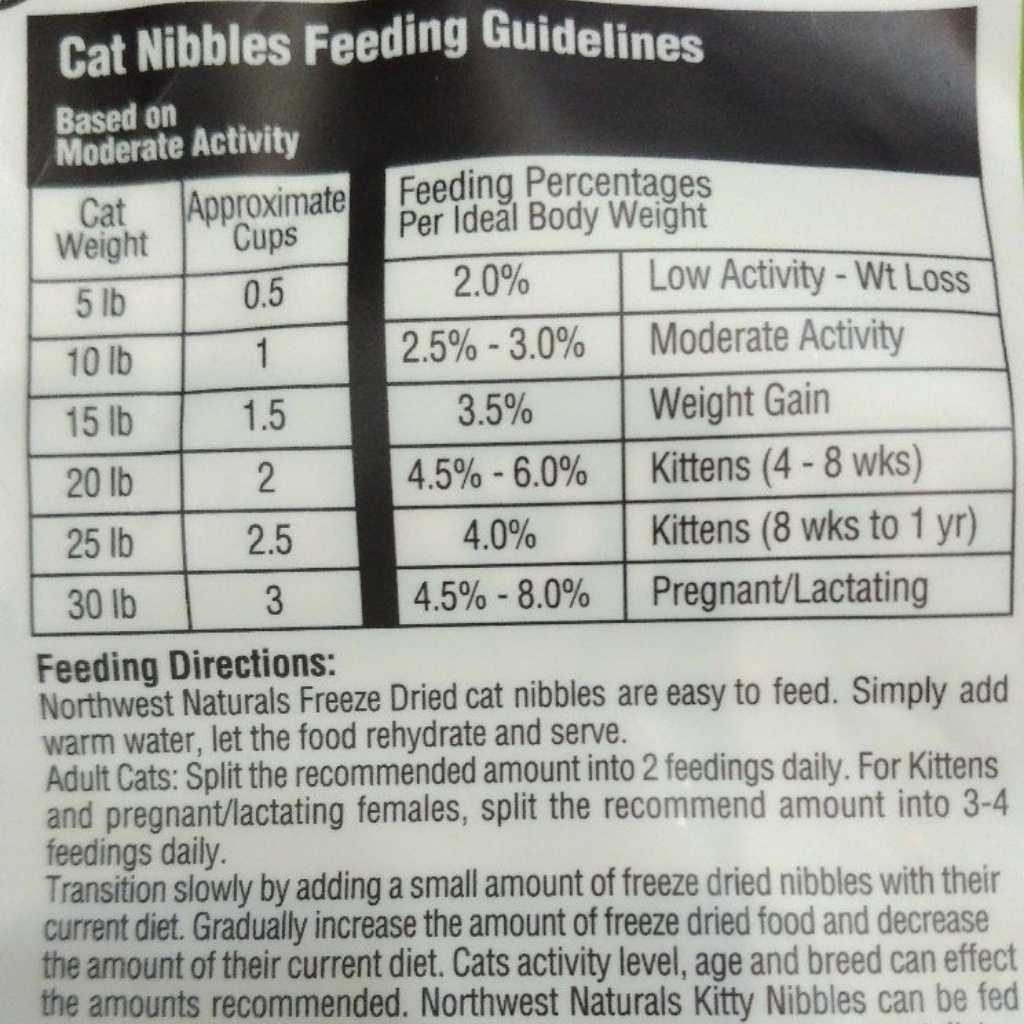
- Ingredient List: Ingredients are listed in descending order by weight. Look for animal proteins as the first ingredient, indicating a high-quality food.
- Guaranteed Analysis: This section provides the minimum and maximum percentages of key nutrients like protein, fat, and fiber. Compare these values to the AAFCO guidelines for a balanced diet.
- Nutritional Adequacy Statement: This statement indicates whether the food meets the AAFCO nutrient profiles for a complete and balanced diet.
- Feeding Guidelines: These are recommendations on how much to feed your cat based on their weight and activity level. Adjust as necessary to maintain a healthy weight.
The Role of Supplements
In some cases, supplements may be necessary to ensure your cat receives adequate nutrition. This can be particularly important for cats with specific health conditions or dietary restrictions.
Essential Vitamins and Minerals for Cats
Supplements should only be used under the guidance of a veterinarian, as excessive amounts of certain vitamins and minerals can be harmful. Common supplements include:
- Taurine: An essential amino acid for cats that supports heart and eye health.
- Fish Oil: Rich in omega-3 fatty acids, which support skin and coat health and reduce inflammation.
- Probiotics: Beneficial for digestive health and maintaining a balanced gut microbiome.
Special Dietary Considerations
Kittens
Kittens have different nutritional needs compared to adult cats. They require higher amounts of protein, fat, and certain vitamins and minerals to support their rapid growth and development. Look for kitten-specific formulas that provide the necessary nutrients in the right proportions.
Senior Cats
As cats age, their nutritional requirements change. Senior cats may benefit from diets that are lower in calories but higher in certain vitamins and minerals to support their aging bodies. Joint supplements, such as glucosamine and chondroitin, can also be beneficial for older cats.
Cats with Health Issues
Cats with specific health conditions, such as kidney disease, diabetes, or allergies, may require specialized diets. Consult with your veterinarian to determine the best dietary approach for managing your cat’s condition.
Homemade Cat Food: Pros and Cons
Some pet owners opt to prepare homemade cat food to ensure complete control over their cat’s diet. While this can be a good option, it requires careful planning and knowledge to ensure all essential vitamins and minerals for cats are included.
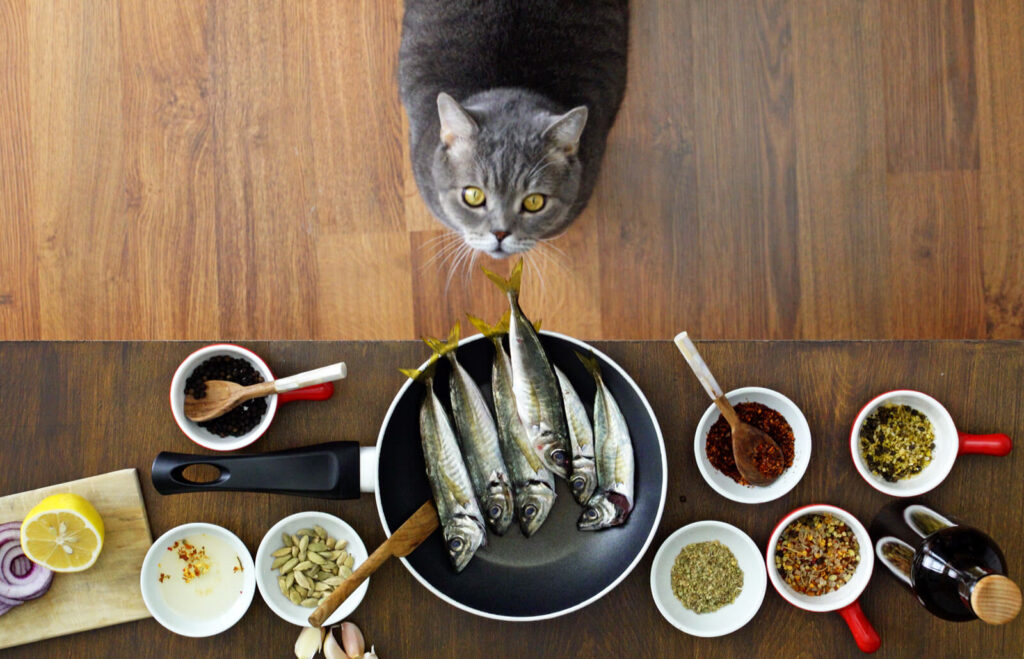
Pros
- Control over ingredients: You can choose high-quality, fresh ingredients.
- Customization: Diet can be tailored to your cat’s specific needs and preferences.
Cons
- Time-consuming: Preparing homemade cat food requires significant time and effort.
- Nutritional imbalances: Without proper guidance, it is easy to miss essential nutrients, leading to deficiencies.
If you decide to prepare homemade cat food, consult with a veterinarian or a pet nutritionist to create a balanced diet plan.
Conclusion
Ensuring your cat receives the essential vitamins and minerals they need is crucial for their overall health and well-being. By understanding these nutrients and their roles, you can make informed decisions about the best cat food for your feline companion.
When selecting cat food, prioritize high-quality ingredients and look for products that meet AAFCO standards. If necessary, consider supplements to address specific nutritional needs, but always consult with your veterinarian before making any changes to your cat’s diet.
Whether you choose commercial cat food or a homemade diet, the key is to provide a balanced and complete nutritional profile. This will help your cat lead a long, healthy, and happy life.






